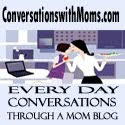
How to Stop Cyber Bullying
Cyber Bullying is an act of aggression exercised online and is typically experienced by web-savvy teens and pre-teens. Cyber bullying, which can take place through social networking sites, forums, emails, instant messaging conversations, and blogs, are aimed at causing emotional harm on the part of the victim. This harm often takes the form of embarrassment, an attack on the victim’s self esteem, or promoting a sense of isolation in the victim through exclusion from social circles.
Cyber bullying, simply put, is easier to accomplish than offline bullying. While an aggressor bullying at school is easily identified, so-called “e-bullies” can hide behind the monitors of their personal computers, protecting the aggressor from the consequences of their tactics.
Human behavior among young people hasn’t changed, but technology and the scope of ramifications has increased dramatically. As the PEW Internet & American Life Project observes, “the impulses behind [cyber bullying] are the same [as those for offline bullying], but the effect is magnified.”
There is no easy way to stop cyber bullying, but there are ways to diminish its effects on your children. Below are a few tips parents and adults can use to help young people understand the potential challenges they face online.
Monitor Your Child’s Mood
Pay attention to your child’s overall mood. Do they seem quiet after spending time online? Does their behavior, aggression, or frustration levels change after they spend time on the Internet?
Teens and children are unlikely to outwardly admit if they are being bullied, largely due to feelings of inferiority, low-self esteem, or embarrassment at social exclusion. Pay attention to changes in your child’s behavior and ask them if they or anyone they know has had mean or hurtful things written about them online.
Talk to Your Kids About Privacy
Engage your child in an honest discussion on the contradiction of terms in the phrase: “privacy on the Internet.” According to the PEW Internet & American Life Project, 15% of teens said that someone they know had forwarded or otherwise posted online communications that they, the teens “assumed was private.” Young people often “copy-paste” instant message conversations or email messages meant to be private, and share them publicly for purposes of embarrassment, social exclusion, or simply malice. There is an easy solution to this type of cyber bullying, widely considered to be the most common form of online harassment: make sure your kids know that nothing published, typed, posted, or shared online is private. Encourage your kids to refrain from communicating ideas online that they would not want their friends, family, or peers to see.
Familiarize Yourself with Your Child’s Online Habits
Make sure you know what it is exactly that your child does when he or she is online. Is your child active on social networking sites like Facebook or MySpace? Studies have shown that young people who use social networking sites are more prone to have experience with cyber bullying, either as an aggressor, as a victim, or even both.
As logic would suggest, the more time your child spends online, particularly if they regularly share their thoughts and ideas on the World Wide Web, the more susceptible he or she is to cyber bullying.
Talk to Your Child About Community Responsibility
According to the PEW Internet & American Life Project’s data on online teens, young people who regularly create content online through blogs, web sites, or photo upload sites are more likely than those teens who do not contribute to the online community to report cyberbullying and online harassment. This data demonstrates that teens that are active in creating a positive community in which they can express themselves are also eager to police it, and thus protecting their community from damaging harassment and hurtful aggression.
Talk to your kids about the fact that their online community can be a healthy place to express themselves, if certain rules are adhered to. The more active your kids are on reporting cyber bullying and online harassment, the easier it will be to reduce its strength.


